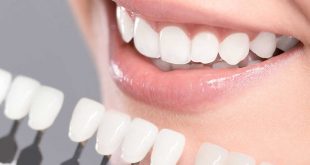After your dental implant procedure, you need some time to heal. Most people need around six months for the implants to fuse with their jaws properly. This is why your diet after the procedure is important.
Doctors recommend a soft diet for six months. After this time, your implants would have healed fully. Then the dentist can place your permanent zirconia teeth. This article contains top tips on what you should eat after your dental implant surgery.
Foods to eat after the procedure
There are a lot of healthy foods you can eat after your dental implant procedure. However, the general rule is that the food should be soft enough to put a fork in easily. Your jaw will likely be sore after the procedure, so you need soft and healthy food. Some popular options include eggs, pasta, sausage, potatoes, and meatloaf.
You can also eat fish, tender chicken, lean beef, macaroni, cooked veggies, soft bread, cottage cheese, beef stroganoff, yogurt, pudding, and baked apples. Foods like French toast, pancakes, and biscuits with gravy may also be considered.
Foods to avoid after the procedure
You need to avoid several foods before your jaw heals properly. These can include hard foods and nuts such as ice cubes, raw apples, steaks, chewy meats, chips, nuts, pretzels, and sticky candies. You may also need to avoid croutons, hard taco shells, and salad lettuce
If you have to struggle to get a knife through it, then you should not eat it. Stick to softer foods and fruits. It will help you keep the implant steady as it heals.
Reasons to avoid some foods while it heals
There are a lot of reasons why you need to avoid different kinds of foods until the jaw heals properly. They include :
Acrylic teeth
Before the final permanent zirconia teeth are implanted, your dentist will fit you with acrylic teeth. It is a temporary procedure and is removed when the implant heals. It is not ideal to chew hard food with acrylic material. The temporary teeth are not strong enough to handle hard cheeping. It is better for custom fitting, and cannot withstand tough chewing. Hard foods can cause these temporary teeth to break off. It is safer to eat soft meals until you can get your more permanent fitting and then you can chew all you want again.
Healing implants
Some foods require more jaw power to cut through. Foods like apples are hard and they can cause a lot of pressure to be applied on the implants before the spot is healed properly. It could damage the implants in the long run. It is safer to wait until the implants have attached to the jawbone before eating such hard foods.
Gaps
When the implant has been added, you may notice that your gums are transforming. As the spot heals, the shape of the gum changes and creates small gaps between your gum and the acrylic teeth. Some food with hard pieces can easily get stuck in between the gaps. This can cause a serious infection if it is not removed. Popcorn is one culprit that can easily get stuck. When the implants fuse to the jawbone, the gum line will be consistent without gaps. So you can resume eating them again.
How to care for your teeth after dental implant procedure ?
Aside from avoiding certain food, you also need to care for your implant before it heals completely. Hence, dental implants aftercare is needed for healing and it will also impact the stability of the prosthetics when they are attached.
For a few weeks after surgery, you may need to keep up with good oral hygiene. Brushing is important, but you need to use only soft-bristled toothbrushes. Do it twice a day and use salt water to rinse the water between the gum and the acrylic teeth. You should do this after each meal and any other time. Water down the saltwater solution. It should not taste salty but lightly salted like tears.
You should also avoid smoking cigarettes or grinding your teeth. These habits seem harmless but could damage the implants. Also, be sure to floss regularly to remove any food particles from the edges of the temporary teeth. This will prevent infections of the gum. Visit the dentist regularly and follow the aftercare instructions.
After about a month of healing, you may no longer need to continue saltwater rinses. You will start to use a Waterpik. The device can be used to clean the gum and implant. Set the pressure to the lowest to start. With time, you can increase the pressure to a more comfortable setting. Apply this water jet between the gum tissue and the hybrid. Focus on both sides of the hybrids and do this once each day.
Following these simple tips will help you to care for your implant until it is fused to your jaw.
 Doc Health Tips – Get health tips here!
Doc Health Tips – Get health tips here!





